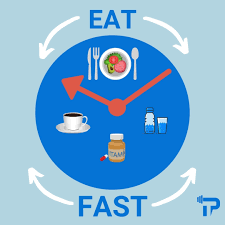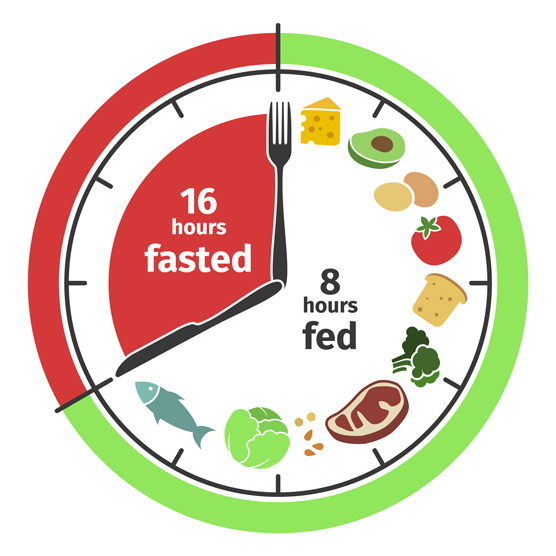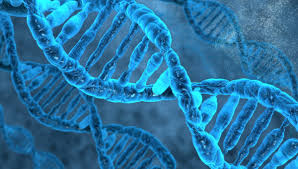I wanna lose weight!
Ok! but how?
Will you go to the gym?
No!
Then how are you losing weight without exercising?
I want to try the best diet plan, suitable for my timings!
So as you are looking for a time-based diet plan you can try intermittent fasting!
Intermittent fasting! What's that?
Yes, we are here to help you to understand everything regarding intermittent fasting.
In this blog, we will be exploring everything about:
 What is intermittent fasting?
What is intermittent fasting?
What are the benefits of intermittent fasting?
How does intermittent fasting work?
What you can eat in intermittent fasting?
Without any further delay let’s delve into the topic of intermittent fasting.
Intermittent fasting:
Ok intermittent can be explained or defined as an eating pattern that has particular eating cycles such as a fasting window and an eating window. There are no specific foods recommended in intermittent fasting, but it focuses on when you should eat.
"Intermittent fasting can be simply explained as a diet plan that has a particular time for fasting and eating."
There are different forms of intermittent fasting such as:
16/8 method:
 The 16:8 method is one of the most followed methods in intermittent fasting and it involves a fasting period of 16 hours and an eating period of 8 hours.
The 16:8 method is one of the most followed methods in intermittent fasting and it involves a fasting period of 16 hours and an eating period of 8 hours.
For example, if you are eating from 12 PM to 8 PM then you should fast from 8 PM to 12 PM. That is nothing but you eat for 8 hours and fast for 16 hours.
5:2 method:
Now, the 5:2 method of intermittent fasting is not about hours in a day you can eat normally in five days of a week and the remaining 2 days of a week you have to cut down your calories to 500-600 calories of food. That is you need to plan a low-calorie food diet.
Eat stop eat:
Eat stop eat is a process that involves fasting for 24 hours once a week or twice as per your convenience.
For example, if your last meal is at 7 PM on Monday then you should not eat again up to 7 PM on Tuesday that is the eat-stop-eat method of intermittent fasting.
How does intermittent fasting work?
So, intermittent fasting works by the body’s response to the fasting state. Whenever you fast, several changes are undergone in your body at the cellular and molecular levels such as hormonal regulation, improved insulin sensitivity, and cellular repair.
Hormonal Changes:
As you fast for a certain time the levels of hormones are affected that is the insulin levels drop boosting the fat burning, and human growth hormone levels get increased helping in fat loss and muscle gain. Norepinephrine levels are also increased which enhances your metabolic rate.
Cellular repair:
 So as intermittent fasting is about fasting and eating, whenever you fast the cells initiate a process called autophagy the process where cells digest and remove old dysfunctional proteins and components. This process is best helpful to prevent chronic diseases such as cancer and Alzheimer’s.
So as intermittent fasting is about fasting and eating, whenever you fast the cells initiate a process called autophagy the process where cells digest and remove old dysfunctional proteins and components. This process is best helpful to prevent chronic diseases such as cancer and Alzheimer’s.
Gene expression:
Fasting does change several genes and molecules that are associated with longevity and protection against certain diseases.
What are the benefits of intermittent fasting?
Weight loss:
As you eat only during the eating period it reduces your weight by reducing the calorie intake. It also enhances the hormonal function that helps with weight loss.
Improved insulin sensitivity:
Intermittent fasting reduces insulin resistance, lowering the blood sugar levels that are best helpful for protecting against type-2 diabetes.
Also, read Sugar & Its Impact On the Human Body
Heart health:
Intermittent fasting also reduces the risk of heart problems by reducing LDL cholesterol and triglycerides.
Brain health:
Also, intermittent fasting increases the brain hormone called BDNF and it also helps for the growth of new nerve cells.
What you can eat during intermittent fasting?
As it is discussed above intermittent fasting focuses on the eating time rather than what you eat, but you need to make sure that you eat healthy and nutritious foods for the weight loss program:
Proteins |
Healthy Fats |
Complex carbohydrates |
|
Lean meats |
Avocados |
Whole grains |
|
Fish |
Vegetables |
|
|
Eggs |
Fruits |
|
|
Plant-based proteins such as beans and lentils |
Stay Hydrated:
Drink an adequate amount of water and you can have herbal teas and black coffee.
Who can do intermittent fasting?
While intermittent fasting is preferable for people who want to lose weight certain people should be aware of:
■People with medical conditions such as diabetes should consult with a doctor before starting intermittent fasting.
■Pregnant women and breastfeeding women should avoid intermittent fasting as they have unique nutritional needs.
■Children and teenagers who have eating disorders should also consult with their healthcare provider.
■Also, people who have any health problems should consult with a doctor before starting intermittent fasting for expert guidance.
Read more on diet
Conclusion:
This is all about intermittent fasting, which is helpful with numerous health benefits from weight loss to maintaining heart and brain health. So be mindful of the eating periods and the fasting periods so that you can achieve your weight loss goals. Anyways a clear understanding can provide you with all the information you need to know but it is always crucial to visit a dietician before you start the fasting process, because based on your health condition doctor can help you with essential tips. Now, after getting a good knowledge enjoy your weight loss journey with intermittent fasting!

